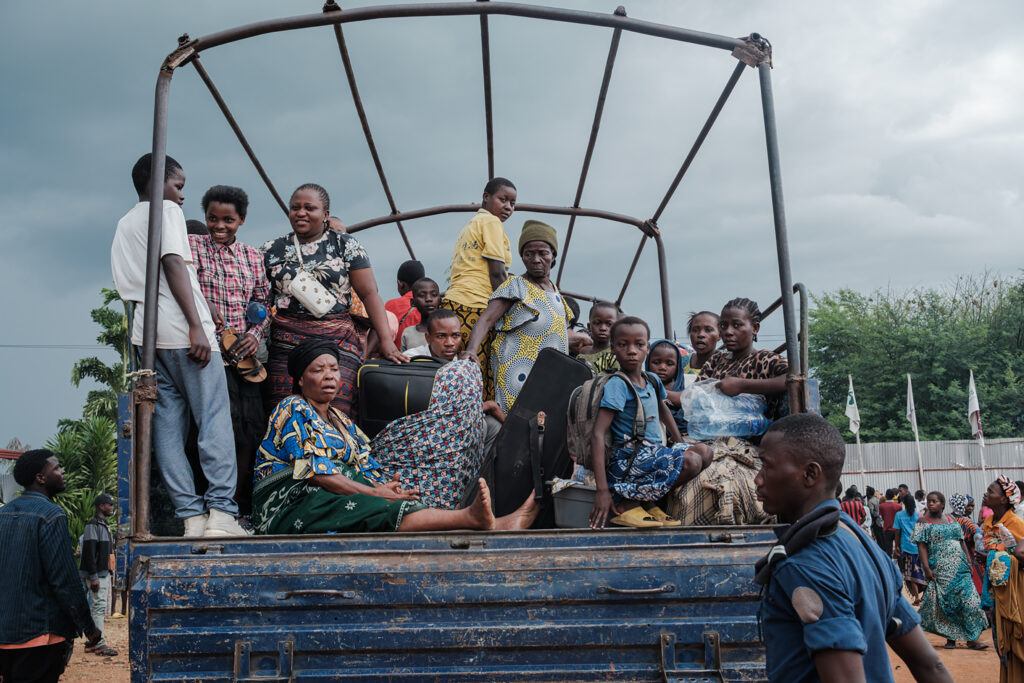Burundi has “accelerated” the withdrawal of some troops from DR Congo, a senior military source told AFP Thursday, as the UN warned the small Great Lakes nation was seeing its biggest influx of refugees from its conflict-riven neighbour in 25 years.Rwandan-backed M23 fighters have made big gains in the eastern Democratic Republic of Congo, seizing the cities of Goma and Bukavu, prompting warnings to the UN Security Council and stoking fears of a regional conflagration.The United Nations warned on Wednesday that the M23 “continues to advance towards other strategic areas” in the eastern Congolese provinces of North and South Kivu.”Since yesterday, the army has accelerated the extraction of our soldiers deployed on the Rusizi plain in the DRC,” a senior army officer told AFP on Thursday, speaking on condition of anonymity.The officer did not specify how many troops were being withdrawn, but did note that one battalion had been sent to “secure the withdrawal of our soldiers” from an area in South Kivu.Since October 2023, Burundi has sent more than 10,000 soldiers to help the Congolese army against the M23 and other armed groups.However, the officer said the soldiers in the DRC were now facing “serious” re-supply issues, blaming the “disorganised” Congolese forces.Burundian soldiers were “at a total loss”, he said, adding: “they have no more ammunition, no more food and have to make do.”Earlier in the week reports that some Burundian troops were staging a “tactical withdrawal” were denied by the army.- Fled for our lives -Meanwhile, “the largest number of refugees that Burundi has seen since the beginning of the 2000s” continued to flee into the country from DRC, Brigitte Mukanga-Eno, representative for the UN refugee agency UNHCR in Burundi, said on Wednesday.”Over the past few days and weeks, we have received thousands of people here in Burundi,” she told a press conference in Bujumbura, estimating roughly “30,000 people” had crossed.”People are still pouring in by the thousands every day.”The Burundian government said Monday that around 10,000 people had crossed the country’s western border, fleeing the violence in the DRC — especially following M23’s arrival in Bukavu, roughly 50 kilometres (30 miles) from Burundi.”I fled with my wife and two children even before the M23 arrived,” Kitenge, who preferred to give only one name, told AFP on Wednesday evening.The 25-year-old motorbike taxi rider said armed groups had “started firing in all directions”, leaving the family no option but to run.”We preferred to flee for our lives,” he said.In Burundi, one woman in her sixties said she and fellow refugees were begging for help they still hadn’t received.”We haven’t had anything to eat,” she told AFP, describing how they were sleeping outside, exposed to the elements without tents or blankets.”We’re running out of everything,” she said. “The weakest are already ill.”We’re begging benefactors to help us, otherwise we’ll die of starvation and disease here,” she said.Interior Minister Martin Niteretse said the government intended to relocate the refugees to eastern Burundi, “in order to guarantee their safety”. He added they would be granted refugee status.Prior to the recent escalation in the conflict, the UNHCR said that Burundi was already hosting roughly 90,000 people — mainly Congolese — who had fled previous bouts of violence in the mineral-rich but conflict-stricken eastern DRC.Some 500 Congolese soldiers and police also arrived in the border town of Gatumba on Wednesday, witnesses and a security source said.The security source said they were disarmed and searched.- Regional war fear -Bintou Keita, head of the UN’s DRC peacekeeping mission (MONUSCO), expressed concern to the UN Security Council over M23’s advance, which she said Wednesday is approaching the “the junction of the three borders between the DRC, Rwanda and Burundi.”Huang Xia, the UN Secretary-General’s special envoy for the Great Lakes region, told the Security Council on Wednesday that M23 and its allies were continuing their advance towards “other strategic areas” in North and South Kivu, warning: “The risk of a regional conflagration is more real than ever.”The fighting in recent weeks has raised fears of a repeat of the Second Congo War, from 1998 to 2003, which drew in multiple African countries and resulted in millions of deaths from violence, disease and starvation.The United States on Thursday unveiled sanctions against Rwandan government minister James Kabarebe over his support for M23.Rwanda has denied involvement in the conflict and says it faces a threat from ethnic Hutu fighters in DR Congo.
